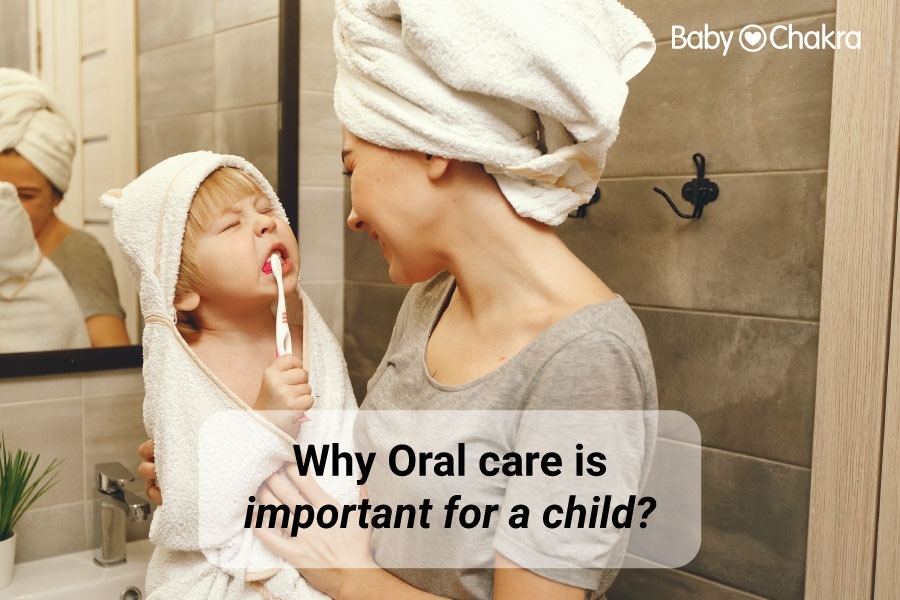
Why Is Oral Care Important For a Child?
2 Oct 2021 | 3 min Read
Sweta Dhatwalia Bajaj
Author | 4 Articles
Poor oral hygiene may cause children to suffer dental complications. And once a child gets affected by any dental problem, it may affect him in his adulthood. It is estimated that 42% of children aged 2 to 11 suffer from cavities, gum-related issues, and bad breath.
But why is it so essential to follow good oral care for a child? This article describes some reasons.
Overall Health
Bad oral hygiene not only affects the dental part of the children but also affects their overall health. It impacts the development and growth of the child in several ways. If a child experiences poor oral health, he also gets affected by poor feeding, insecurity to face social circle, feels less confident about his presence, etc. Poor dental health causes pain and discomfort, which can make any child cranky and irritable. Children with bad teeth have difficulty chewing food properly, thus being underweight and low in their immune system.
Cognitive Development
Poor dental hygiene also affects a child in his overall academic performance. In one of the studies, 42% of children with poor dental health missed their schools due to this only problem. They remain absent from their classes due to toothache or gum infection. In contrast, dental hygiene does not interfere with their intellectual growth and progress.
Chronic Medical Condition
It is a well-known fact that if proper dental hygiene is not taken care of from early childhood, it may lead to chronic medical conditions like gingivitis, plaque, cracked teeth, sensitivity, etc. Thus, it is essential to lay down a strong foundation of good oral hygiene amongst the children.
Other Preventable Conditions
Proper dental hygiene helps to prevent several infections like tooth cavities, abscesses, vitamin deficiencies, etc. Hence, regular oral checkups are good for maintaining proper oral hygiene and preventing other related conditions.
Psychological Consequences
Poor dental health also causes several psychological effects on children. For instance, a repeated toothache can make any child irritable and bad-tempered. It will further decrease the social balance between the child and its peers. When the front tooth is injured or infected, children usually fear rejection from their near ones. It leads to social isolation and avoidance of smiling, shyness in the company of others, etc. These children start believing themselves worthless and hence get into depression.
It is important to train children and motivate them to brush twice a day and rinse their mouths correctly after each meal. Early intervention is much needed than after-effect guilt.
A


Related Topics for you
Suggestions offered by doctors on BabyChakra are of advisory nature i.e., for educational and informational purposes only. Content posted on, created for, or compiled by BabyChakra is not intended or designed to replace your doctor's independent judgment about any symptom, condition, or the appropriateness or risks of a procedure or treatment for a given person.
